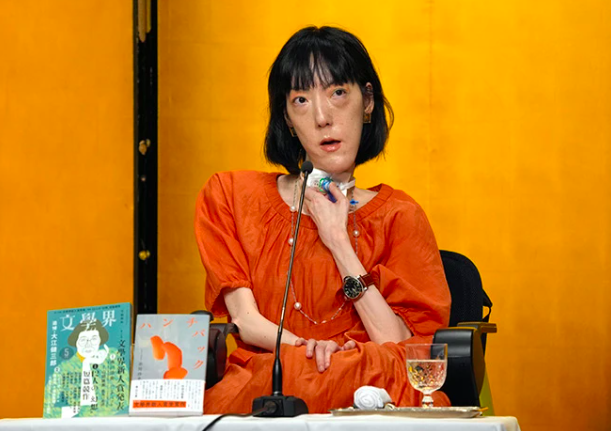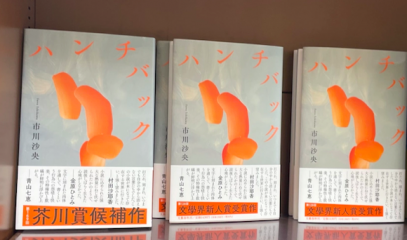Disabled writer Ichikawa wins prestigious literary prize
For the first time, a person with disabilities wins an award in Japan. The author is recognised for her humorous novel, “Hanchibakku” (Hunchback). “I wrote this with the mind that there are not many authors like me," Ichikawa said.
Tokyo (AsiaNews/Agencies) – Japanese author Saou Ichikawa has won the Akutagawa Prize, Japan’s most prestigious award for up-and-coming writers.
Ichikawa, who has congenital myopathy, was recognised for her novel “Hanchibakku” (Hunchback), a humorous work centred on a woman with disabilities, in which she highlights – and sometimes criticises – the privileges of able-bodied people.
The writer is the first person with physical disabilities to win the prestigious literary prize for a novel in which she candidly recounts the frustrations and desires of a woman with disabilities.
Ichikawa was diagnosed with congenital myopathy, an incurable disease characterised by muscle weakness, early in her life, for this reason, she is in a wheelchair and has had to rely on a ventilator since the age of 14.
"I wrote this with the mind that there are not many authors (with severe disabilities) like me," Ichikawa said at the news conference announcing the awards.
“I would like everyone to think about why it is that a work like this became a first to win the Akutagawa Prize in 2023,” said the 43-year-old, a hint to the major, sometimes insurmountable obstacles a person with disabilities encounters in every experience, act and deed in life.
Writer Keiichiro Hirano, a member of the panel that assigned the Akugatawa Prize, stressed that Ichikawa's novel won overwhelming support in the vote for its strength.
“She critically dismantled social norms and etiquette through the use of the protagonist’s difficulties,” he said.
The official award ceremony is set in Tokyo in late August, when the author will receive one million yen prize money (about US$ 7,000).
At the press conference, Ichikawa spoke with difficulty using her thumb to regulate a stoma, a hole in the windpipe that helps her breathe.
On this occasion she talked about the novel’s protagonist, a disabled woman like herself who lives alone in a house, attached to a ventilator.
With irony and humour, she describes herself as someone with a stooped back, a “hunchbacked monster”, detailing her real life and the many hardships she encounters every day, as well as her resentment towards the behaviour of some able-bodied people.
Ichikawa has always been a great reader. Growing up, she spent most of her time at home and had “nothing to do other than read”.
After the age of 20, her dream was having a job that would make her independent, but that was not the case. Eventually, she turned to writing, but gave it up since she did not like what she had written.
She began reading light novels, a popular Japanese genre for young adult books, which give her a new spark. This led to writing a book to help reflect on the topic of disability, but also laugh.
In March of this year, she completed a correspondence course at Waseda University’s School of Human Sciences studying how people with disabilities are represented in literature. “Examples were so scarce that (I decided) I should add to them myself,” she said.
"Hanchibakku" is Saou Ichikawa's first work, published in the May issue of Bungakukai, a literary magazine, immediately winning the publication’s Newcomer Award.
The novel is about Shuka Izawa, a woman with a curved spine caused by a congenital hereditary muscle disease, who uses an electric wheelchair and ventilator and lives in a group home where her wealthy parents left her, rarely venturing outside.
15/03/2018 12:52
04/06/2008








.png)










